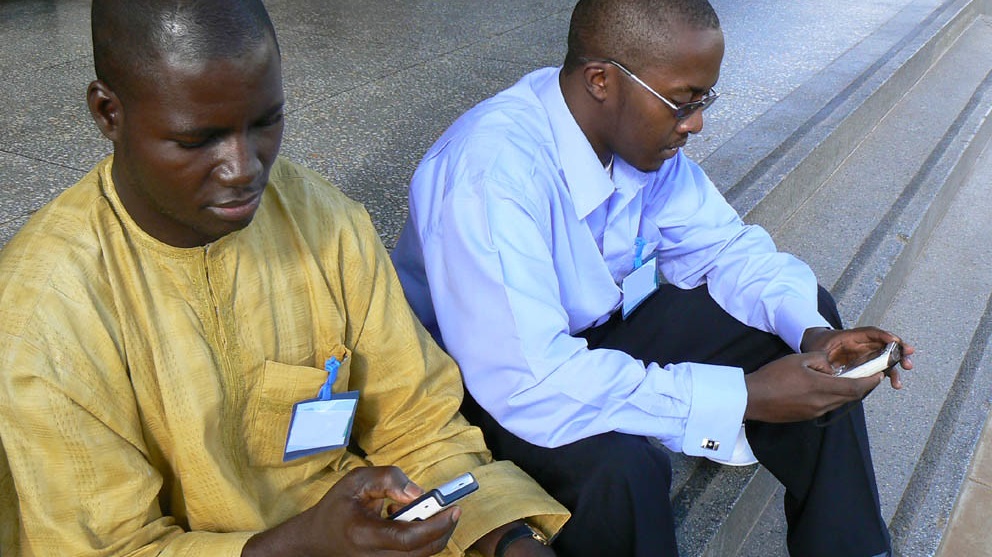In a move that signals a major leap forward in generative AI, OpenAI has quietly rolled out ChatGPT-5, its most advanced model to date….
The New Normal: Opportunity for fintechs to help transform financial sector [Opinion]

The New Normal is a new regular column Ventureburn will run, featuring business leaders and how Covid-19 is reshaping the tech world.
The coronavirus pandemic has forced the global economy to take pause. There is a growing realisation that the world was accelerating through an unsustainable period of growth and expansion over all other considerations. Were we moving too fast and getting too carried away with short-termism?
The sudden slowdown in public and economic life is forcing people and businesses to reconsider what the world should look like and what parts of ‘normal’ are worth rushing back to.
It is also putting immense pressure on the world’s most vulnerable and poor communities. Unrest over the economic impact of lockdown measures has sparked protest across the globe. For poor communities, the effects of the lockdown have been immediate and devastating.
Vulnerable communities at risk
According to the Institute for Poverty, Land and Agrarian Studies (Plaas) the lockdown measures have affected poor people’s access to food. Smallholder farmers and street vendors are unable to continue producing and selling food, blocking their only source of income. There is also growing unease over the poor’s access to sufficient nutrition.
There is huge potential for fintech to help remake the financial system to better serve all communities
This is causing a sudden and (most likely) long-term loss of income, with the most vulnerable facing a precarious situation of having no access to food or the funds needed to purchase food.
In response, government has introduced the biggest economic relief package in South African history. This includes additional social and child grants for South Africa’s more than 17 million grant recipients, R100-billion for the protection and creation of jobs, and the distribution of food parcels to the most vulnerable communities.
Tax breaks, UIF payouts and government-funded debt relief are among the measures being used to support the country’s business community, with a strong focus on rescuing the SME sector.
Support for SMEs
Within this fraught environment, fintech companies have a key role to play to assist the broader financial system to adapt to new realities more quickly than the larger monolithic banks and insurers are able to.
Fintech companies are not designed to dominate markets: instead, they use new ideas and technology to challenge the status quo.
Even with amazing technology and effective rails – channels for accessing consumers, services, and other value-adds – fintechs cannot scale without partnering with the bigger enterprises.
During a recent webinar hosted by Crossfin, CEOs from some of South Africa’s largest and most innovative fintech companies put their heads together to consider how the South African financial system could evolve to better meet the immediate and longer-term needs of all communities.
According to Karl Westvig, CEO at Retail Capital, 90% of the lender’s customer base of South African SMEs is currently in lockdown and unable to trade. When restrictions are eased and business resumes, SMEs will need funding to kickstart their businesses.
But the credit scoring methods used pre-lockdown will have to be adjusted: with no trading history for at least a month, lenders will need to take a broader view of applicants’ viability for funding and do what they can to support business owners at this critical time.
In a recent survey conducted by Retail Capital, 85% of SMEs reported a decrease in turnover since lockdown measures were implemented.
A StatsSA survey (opens as a PDF) last month found that only 29% of SMEs were confident they would survive the economic damage from the lockdown. And despite billions being made available through a range of public and private funds, applications for financial support have far outstripped the supply of funds available.
Help for informal traders
In the informal market, merchants and traders in townships will also need to adjust their way of work. Matt Putman at iKhokha works with merchants in informal markets daily, equipping them with electronic payment acceptance devices to bring more trade into the formal banking system.
While trade volumes have remained consistent despite the lockdown, the new reality of social distancing will push consumers to use contactless payment methods where possible.
E-commerce is also likely to pick up even in informal markets, especially as older folks self-isolate in line with health department guidelines.
However, there will need to be a concerted effort among financial institutions and fintech companies to remove barriers to acceptance, especially in environments where cash still dominates.
Finance minister Tito Mboweni’s recent comments that it will become compulsory for spaza shops to have trading permits and bank accounts could accelerate adoption of new payment tools as banks derive direct benefit from upselling payment devices either through their own channels or via the broader fintech ecosystem.
David de Coning at Crossgate believes there is still a job to be done around addressing the perceived risks of digital payments. Traders that are accustomed to using cash will not look kindly upon bank charges and transaction fees, especially not when every rand and cent matters.
Despite Mboweni’s statement, many businesses still struggle with applying for formal banking services, with FICA being a major obstacle. Until these aspects are sufficiently addressed, a major acceptance gap will continue to dominate the informal market, forcing cash over cards.
One workaround is to push the adoption of mobile payment methods. In the informal market, mobile wallets are gaining traction as a means of distributing funds safely and securely without the perceived high bank charges.
Matt Goosen, co-founder of My-iMali, a merchant management platform for wallet-to-wallet payments, believes that moving wage workers away from cash could be achieved through the adoption of mobile wallets.
Instead of employers withdrawing funds from an ATM, Goosen is lobbying for greater use of mobile wallets as a wage disbursement mechanic.
Since my-iMali also offers prepaid debit cards, any worker receiving wages via the mobile wallet can spend that money at card-accepting merchants, completely eliminating the need for cash.
Fintechs step up to support
Fintech groups are well-positioned to support broader industry and government efforts to improve trade and transacting across the formal and informal markets.
Funds from initiatives such as the Solidarity Fund can be distributed via group company “rails”, for example in grocery store till lanes with appropriate payment devices.
These same rails can be used to distribute third-party payments, vouchers and coupons, for example food vouchers given to vulnerable communities that can be redeemed using the tech that fintechs have implemented at the point of sale.
Loans can be distributed to SMEs via the digital channels fintechs have established. Cash can be displaced through cashless payment solutions to help the most vulnerable with accessing funds without having to go to cash points.
Payment acceptance devices such as mobile point of sale terminals can be issued to SMEs, spaza shops and informal traders to encourage contactless and cashless payments among communities.
There is huge potential to remake the South African financial system to better serve all communities.
Fintechs can play a critical role by partnering with government, banks and other large enterprises to accelerate adoption of cashless payment methods and usher in a new era of financial inclusion and safe, secure trade.
Anton Gaylard is the chief operating officer at Crossfin, which has investments in Retail Capital, my-iMali and iKhokha.
Read more: The New Normal: Time for tech sector to rise to the occasion [Opinion]
Featured image: Ken Banks via Flickr (CC BY 2.0)


